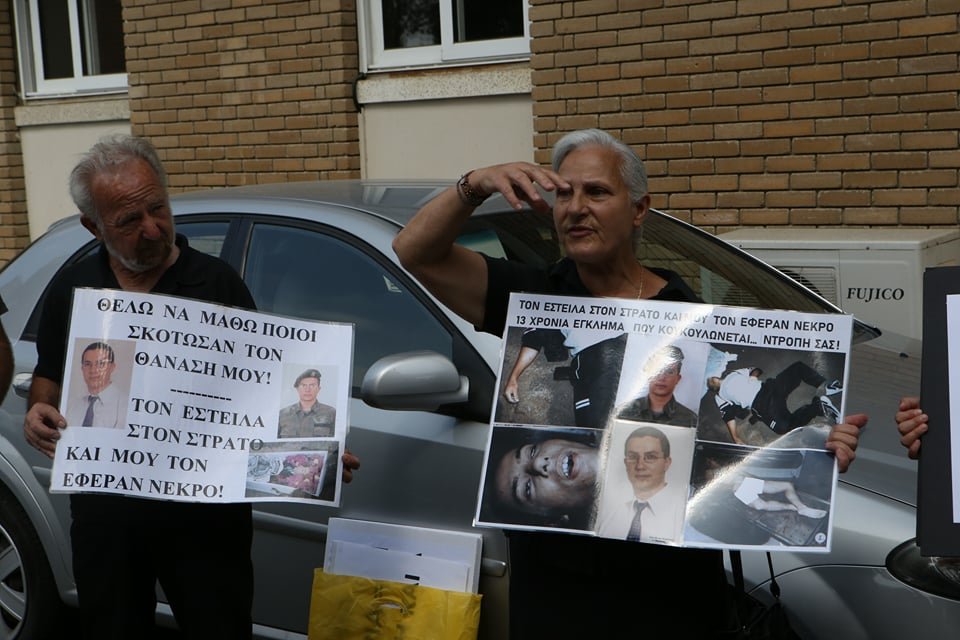A probe by two criminal investigators into the death of national guardsman Thanasis Nicolaou, 26, in 2005 has revealed more information that suggests his death was not a suicide, according to reports on Saturday.
Nicolaou’s body was found under a bridge in Alassa, Limassol, about 12 kilometres from his home and barracks on September 29, 2005. His death had been ruled a suicide by authorities, a finding fiercely disputed from the outset by his family who have been fighting ever since to find out the truth.
Last October, Attorney-general Giorgos Savvides appointed three independent investigators to reopen the case of the death of a 26-year-old soldier in 2005, which appears to have been the result of foul play.
The AG said the decision to appoint the investigators was based on the reports of two experts who had examined Nicolaou’s remains and the findings of two inquests done in the past.
Family-appointed Greek pathologist Demetra Karayianni said she had found that Thanasis’ hyoid – a U shaped bone that supports the tongue – was fractured, and it had been inflicted before his death.
Karayianni was adamant that the fracture had been caused ante mortem and could only be caused by strangulation or hanging. Injuries to the hyoid bone are rare. The most commonly reported injury is fracture, and it is often a post-mortem finding with a high incidence in victims of strangulation and hanging.
Savvides announced the appointment of lawyers Achilleas Emilianides, Savvas Matsas, and Antonis Alexopoulos to probe further. Emilianides withdrew from the investigation in January citing personal reasons.
According to Phileleftheros on Saturday, citing their information, the two remaining investigators staged a reconstruction of the day of Nicolaou’s death, visiting the Alassa bridge, recreating the last day of the soldier’s life.
What they seemed to have gleaned from the reconstruction, according to the newspaper, is that his body could have been transported to the scene, with his vehicle being brought there at a later time.
There was also no dent in the ground where his body was, indicating that he may not have jumped from the bridge but might have been placed at the spot.
Also, Nicolaou, that morning had eaten cornflakes for breakfast, which were found still undigested in his stomach. This indicated that his death occurred within two hours of his having eaten, the report said, even though his time of death was registered as much later that day.
Lapses by investigating authorities appeared to include the fact that the case was assigned to an inexperienced police officer with no team. This meant that there was no attempt to locate DNA material inside the vehicle or under the dead soldier’s fingernails.
All these gaps and findings are expected to be discussed by the criminal investigators with the legal service in the coming days, in order to take the next steps, the report said.







Click here to change your cookie preferences